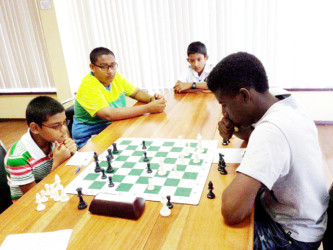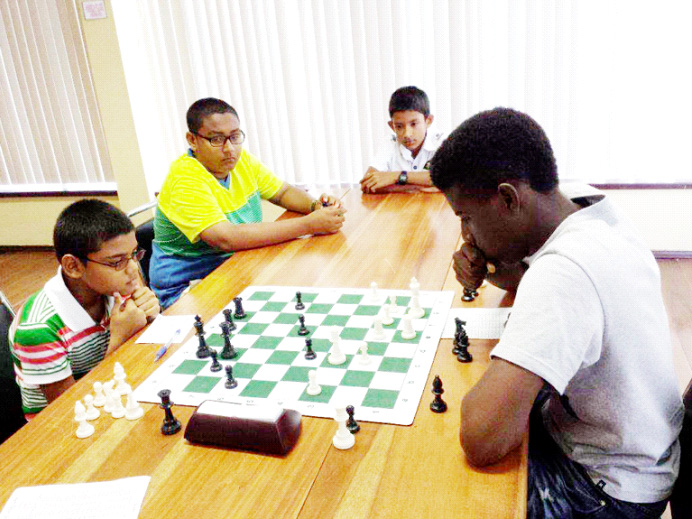Playing chess is like having psychic powers. We look deep into the game and figure out what our opponents are going to do, before they actually do it. Precise calculation is what separates the average chess player from the professionally successful one. Exact calculations win tournaments. The element of chance is removed, and this aspect of the game is what makes chess different and unique.

 Two Sundays ago, the widely appealing Trophy Stall classical chess tournament came to a tame finish. The winner and runner-up, Taffin Khan and Maria Verona-Thomas respectively, were not the prime favourites to emerge as the principal finishers. Yet, they both persevered and obtained select honours. One fulfilling aspect of Khan’s victory was how quickly he played. Even in complicated positions, he did not use all of his allotted time. Khan played solidly. At the conclusion of each of his games, Khan had precious minutes remaining on his clock. A professional chess player is as good as the time he utilizes. Khan was analyzing positions more quickly and accurately than his opponents. I perceived his final combination against Wendell Meusa. Khan was two pawns up and Meusa’s fortified king became detached from his secure fortifications and was running helter-skelter the length of the chessboard. Khan quickly brought his two rooks into action. Meusa was attempting to control a passed pawn which Khan was aiming to create. Khan issued check with a rook on the h-file sacrificing his g-file pawn. Khan had his other rook on the g-file which was covered by another g-pawn. Playing the white pieces, Khan boasted doubled pawns on the g-file. When Meusa took the unattended g pawn, Khan took the h pawn causing discovered check. At that point, Meusa resigned. Khan’s h pawn could not be prevented from becoming a queen not to mention the ignominious checkmating net that was being cast.
Two Sundays ago, the widely appealing Trophy Stall classical chess tournament came to a tame finish. The winner and runner-up, Taffin Khan and Maria Verona-Thomas respectively, were not the prime favourites to emerge as the principal finishers. Yet, they both persevered and obtained select honours. One fulfilling aspect of Khan’s victory was how quickly he played. Even in complicated positions, he did not use all of his allotted time. Khan played solidly. At the conclusion of each of his games, Khan had precious minutes remaining on his clock. A professional chess player is as good as the time he utilizes. Khan was analyzing positions more quickly and accurately than his opponents. I perceived his final combination against Wendell Meusa. Khan was two pawns up and Meusa’s fortified king became detached from his secure fortifications and was running helter-skelter the length of the chessboard. Khan quickly brought his two rooks into action. Meusa was attempting to control a passed pawn which Khan was aiming to create. Khan issued check with a rook on the h-file sacrificing his g-file pawn. Khan had his other rook on the g-file which was covered by another g-pawn. Playing the white pieces, Khan boasted doubled pawns on the g-file. When Meusa took the unattended g pawn, Khan took the h pawn causing discovered check. At that point, Meusa resigned. Khan’s h pawn could not be prevented from becoming a queen not to mention the ignominious checkmating net that was being cast.
We look forward to the Mashramani chess tournament.

